Filter by

The Fixer Visa Lottery Chronicles
In the West African nation of Togo, applying for the U.S. Diversity Visa Lottery is a national obsession, with hundreds of thousands of Togolese entering each year. From the street frenzy of the lottery sign-up period and the scramble to raise money for the embassy interview to the gamesmanship of those adding spouses and dependents to their dossiers, the application process is complicated, exp…
- Edition
- -
- ISBN/ISSN
- 9781478001911
- Collation
- -
- Series Title
- -
- Call Number
- -
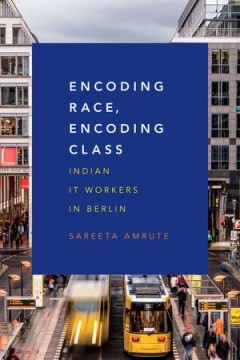
Encoding Race, Encoding Class Indian IT Workers in Berlin
In Encoding Race, Encoding Class Sareeta Amrute explores the work and private lives of highly skilled Indian IT coders in Berlin to reveal the oft-obscured realities of the embodied, raced, and classed nature of cognitive labor. In addition to conducting fieldwork and interviews in IT offices as well as analyzing political cartoons, advertisements, and reports on white-collar work, Amrute spent…
- Edition
- -
- ISBN/ISSN
- 9781478091875
- Collation
- -
- Series Title
- -
- Call Number
- -
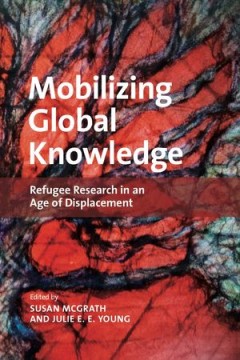
Mobilizing Global Knowledge Refugee Research in an Age of Displacement
In 2018, the United Nations High Commission for Refugees documented a record high 71.4 million displaced people around the world. As states struggle with the costs of providing protection to so many people and popular conceptions of refugees have become increasingly politicized and sensationalized, researchers have come together to form regional and global networks dedicated to working with dis…
- Edition
- -
- ISBN/ISSN
- 9781773850863
- Collation
- -
- Series Title
- -
- Call Number
- -
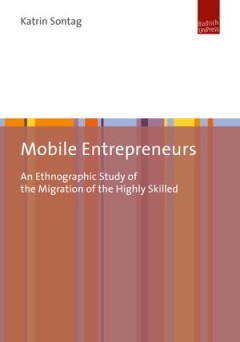
Mobile Entrepreneurs
Migration, mobility, and globalization are transforming ways of working and living. Business activities, relationships and a sense of belonging are often not tied to any one place. This book explores biographies of highly mobile startup founders who often run startups that have been called „born global“. It describes how they move, how they orientate and perceive themselves, and how migrati…
- Edition
- -
- ISBN/ISSN
- 9783863883607
- Collation
- -
- Series Title
- -
- Call Number
- -
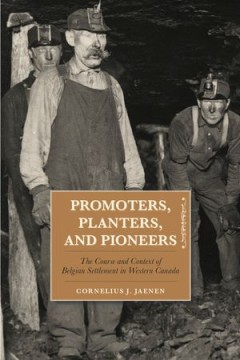
Promoters, Planters, and Pioneers The Course and Context of Belgian Settleme…
In this comprehensive study of Belgian settlement in western Canada, Cornelius Jaenen shows that Belgian immigration was unique in its character and brought with it significant benefits out of proportion to its comparatively small numbers. Canadas first Immigration Act (1869) included Belgium among the “preferred countries” from which immigrants should be sought, but unlike many other Europ…
- Edition
- -
- ISBN/ISSN
- 9781552385708
- Collation
- -
- Series Title
- -
- Call Number
- -
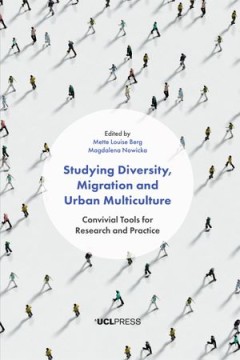
Studying Diversity, Migration and Urban Multiculture
Anti-migrant populism is on the rise across Europe, and diversity and multiculturalism are increasingly presented as threats to social cohesion. Yet diversity is also a mundane social reality in urban neighbourhoods. With this in mind, Studying Diversity, Migration and Urban Multiculture explores how we can live together with and in difference. What is needed for conviviality to emerge and what…
- Edition
- -
- ISBN/ISSN
- 9781787354784
- Collation
- -
- Series Title
- -
- Call Number
- -
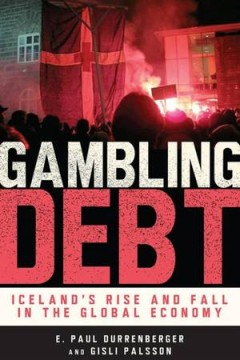
Mobilizing Global Knowledge Refugee Research in an Age of Displacement
In 2018, the United Nations High Commission for Refugees documented a record high 71.4 million displaced people around the world. As states struggle with the costs of providing protection to so many people and popular conceptions of refugees have become increasingly politicized and sensationalized, researchers have come together to form regional and global networks dedicated to working with dis…
- Edition
- -
- ISBN/ISSN
- 9781773850863
- Collation
- -
- Series Title
- -
- Call Number
- -
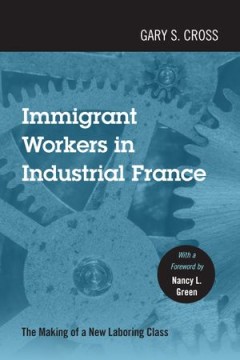
Immigrant Workers in Industrial France The Making of a New Laboring Class
In Immigrant Workers in Industrialized France, Gary Cross blazed the trail of immigrant studies with this finely wrought study at the crossroads of labor studies and immigration history. Cross inaugurated in-depth research into the ways in which France welcomed immigrants from the 1880s onward. He starts with the formative period before World War I, when employers’ groups actively recruited f…
- Edition
- -
- ISBN/ISSN
- 9781439917626
- Collation
- -
- Series Title
- -
- Call Number
- -

Mobilizing Global Knowledge: Refugee Research in an Age of Displacement
In 2018, the United Nations High Commission for Refugees documented a record high 71.4 million displaced people around the world. As states struggle with the costs of providing protection to so many people and popular conceptions of refugees have become increasingly politicized and sensationalized, researchers have come together to form regional and global networks dedicated to working with dis…
- Edition
- -
- ISBN/ISSN
- 9781773850863
- Collation
- -
- Series Title
- -
- Call Number
- 351.81 MOB m

Studying Diversity, Migration and Urban Multiculture
Anti-migrant populism is on the rise across Europe, and diversity and multiculturalism are increasingly presented as threats to social cohesion. Yet diversity is also a mundane social reality in urban neighbourhoods. With this in mind, Studying Diversity, Migration and Urban Multiculture explores how we can live together with and in difference. What is needed for conviviality to emerge and what…
- Edition
- -
- ISBN/ISSN
- 9781787354784
- Collation
- -
- Series Title
- -
- Call Number
- 307.2 STU s
 Computer Science, Information & General Works
Computer Science, Information & General Works  Philosophy & Psychology
Philosophy & Psychology  Religion
Religion  Social Sciences
Social Sciences  Language
Language  Pure Science
Pure Science  Applied Sciences
Applied Sciences  Art & Recreation
Art & Recreation  Literature
Literature  History & Geography
History & Geography